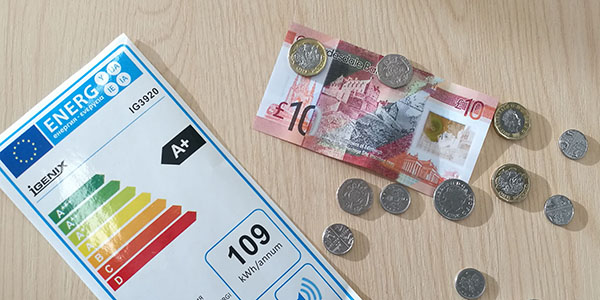
On Monday 26 March the Centre for Energy Policy held the first 2018 Energy Conversation: "Retrofitting for energy efficiency - will it be worth it in the end?".
Our next events take place on Tuesday 1 May. We have "Making the Macroeconomic Case for Carbon Capture and Storage?" from 3pm-5pm, followed by "What are the Economic Opportunities from Hydrogen?" from 6pm-7.30pm. Both events are free, and registration is essential.
Here are CEP's reflections on "Retrofitting for energy efficiency - will it be worth it in the end?"
 |
Oluwafisayo Alabi Research Associate, Centre for Energy Policy |
Wider public acceptance of the significance of retrofitting for energy efficiency may be possible, if consumers are guaranteed some form of return on their investments in energy reduction measures. However, there is still the overarching challenge on how to create a balance between consumer comfort, their control over energy bills/costs and national pathways to decarbonisation.
The solution may then boil down to how the government and energy suppliers can work together to make energy efficiency more attractive and materialistic despite the income inequality gaps, intergenerational changes and changing shape of the energy industry.
 |
Christian Calvillo Research Associate, Centre for Energy Policy |
When the rationale of ‘saving money on your bills’ has not been enough to motivate people on investing in home retrofitting, we need to find alternatives. To start, we need to make clear to all stakeholders that the benefits of a warmer house go beyond saving a few pounds each month, as it also translates to healthier and more productive individuals.
If everything else fails, we need to market energy efficiency as a ‘cool’ aspirational product. Maybe ‘Alexa’ and the smart thermostats can show us the way?
 |
Ian Cochran Visiting Scholar, Centre for Energy Policy |
The discussions suggested that a key aspect of fostering energy efficiency may be helping to reduce the ‘transaction costs’ of the process. Helping households and businesses identify how they can maximize the benefits of EE at a given cost, and connect them with reputable and competent service providers that they can trust to deliver quality results, may be just as important as providing grants and low-cost loans, etc.
Making this ‘easy’ should also be a policy objective.
 |
Gioele Figus Research Associate, Centre for Energy Policy |
Improving energy efficiency is about being able to more do with less and in principle we all want that. However, it is overly ambitious to rely solely on energy efficiency improvements to meet the Scottish carbon emission targets, as this may just be unfeasible. Additionally, retrofitting is costly and people make spending decisions based on personal preferences and trends.
Perhaps increasing the aspirational value of living in energy-efficient homes would help to change people’s attitude towards saving energy and reducing emissions.
 |
Ragne Low Principal Knowledge Exchange Fellow, Centre for Energy Policy |
Very deep retrofit is challenging and success depends on the individual characteristics of each property, as well as the preferences of the occupiers. The costs may run into the tens of thousands for some properties.
People need tailored advice from a reputable and independent source, but running this sort of service also comes at a cost – and there appears to be no alternative to Government funding this (not least because of householders’ lack of trust in energy suppliers and the legacy of mistrust of the trades and installation companies from past ‘cold-calling’ campaigns).
In terms of incentives, there are few that seem to have mass appeal other than tax rebates. Long pay back periods do not act as an incentive for householders to invest.
 |
Antonios Katris Research Associate, Centre for Energy Policy |
A key point raised during the discussion was that stress and health issues associated with energy use are becoming more important over time. In fact, residential energy use is examined from multiple perspectives rather than the monetary one. As a result, using monetary savings as the sole promotion point for energy efficiency improvements to households may no longer be the most effective approach.
It is important then to better understand which elements people consider as equally, or even more, important to money savings.
Tags: News & Blogs